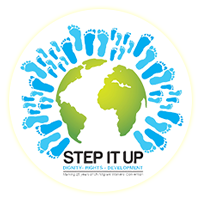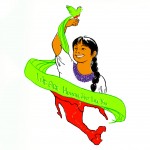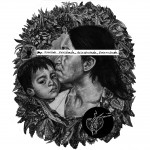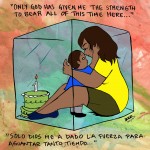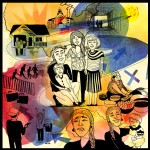Ending Child Immigration Detention
Every day, all around the world, millions of children and young people are affected by immigration detention. Whether detained themselves or implicated by the detention of their parents or guardians, children and young people are particularly vulnerable to abuse and neglect. Children that are unaccompanied or separated from their parents or guardians are often unable to advocate for their fundamental human rights. States detain children migrants for a number of reasons, such as health and security screening, to verify their identities, or to facilitate their removal from the territory. Regardless of the reason for detention or the conditions in which children are held, a number of studies have shown that detention has a profound and negative impact on child health and development. Given the detrimental effects that detention and family separation have been shown to have on children, the Committee on the Rights of the Child has found that the detention of a child because of their or their parents’ migration status constitutes a child rights violation and always contravenes the principles of the best interests of the child. The Committee on the Protection of the Rights of All Migrant Workers and Members of Their Families affirmed this view in its general comment No. 2 (CMW/C/GC/2) stating that States parties should always give priority to alternatives to administrative detention where children and families are concerned as administrative detention often has dire consequences for children.
Recent posts in this section
- Children that migrate with their parents who are migrant workers;
- Children that are born to parents who are migrant workers in transit and destination countries;
- Migrant children that return to their country of origin, either voluntarily or by force, alone or with their parents;
- Children left behind by their parents (or one of them) who have migrated to another country; and
- Children that migrate unaccompanied and separated from their parents (for reasons such as seeking employment, family reunification or as victims of trafficking, labour exploitation and child labour).
- Elaborating for State Parties and other key stakeholders guidelines for developing migration, childhood and related policies aimed at protecting and realizing the rights of children in the context of migration;
- Providing the CMW and CRC Committees with a specific tool to facilitate their role to monitor the implementation of the respective treaties in States parties as mandated by the Conventions;
- Promoting a clearly articulated interpretation of relevant provisions of the CMW and CRC to assist in the further implementation of the Conventions at the domestic level in both law and in practice; and
- Highlighting the relevance of a rights-based approach in relation to the phenomenon of children in the context of migration.
- Children that migrate with their parents who are migrant workers;
- Children that are born to parents who are migrant workers in transit and destination countries;
- Migrant children that return to their country of origin, either voluntarily or by force, alone or with their parents;
- Children left behind by their parents (or one of them) who have migrated to another country; and
- Children that migrate unaccompanied and separated from their parents (for reasons such as seeking employment, family reunification or as victims of trafficking, labour exploitation and child labour).
- Elaborating for State Parties and other key stakeholders guidelines for developing migration, childhood and related policies aimed at protecting and realizing the rights of children in the context of migration;
- Providing the CMW and CRC Committees with a specific tool to facilitate their role to monitor the implementation of the respective treaties in States parties as mandated by the Conventions;
- Promoting a clearly articulated interpretation of relevant provisions of the CMW and CRC to assist in the further implementation of the Conventions at the domestic level in both law and in practice; and
- Highlighting the relevance of a rights-based approach in relation to the phenomenon of children in the context of migration.
Submission of Joint General Comment on Children in the Context of Migration
The Committee on the Rights of the Child (CRC) and the Committee on Migrant Workers (CMW) have launched a call for submissions for a Joint General Comment on the human rights of children in the context of international migration.
The submissions relate to the situation of human rights of the following categories of children (people under the age of 18) in the context of migration:
The main goal of this initiative is to contribute to improving the protection of the human rights of children which are, in the context of international migration, in a particular situation of vulnerability. Specific goals of this general comment include:
The following organizations have given their submission which can be accessed below:
Click here for the full post
Call for Submissions on Joint General Comment on Children in the Context of International Migration
The Committee on the Rights of the Child (CRC) and the Committee on Migrant Workers (CMW) have launched a call for submissions for a Joint General Comment on the human rights of children in the context of international migration.
The submissions relate to the situation of human rights of the following categories of children (people under the age of 18) in the context of migration:
The main goal of this initiative is to contribute to improving the protection of the human rights of children which are, in the context of international migration, in a particular situation of vulnerability. Specific goals of this general comment include:
More information on can be found in the concept note which can be seen below.
Concept note for the Joint General Comment
Concept Note - English Version
Concept Note - Spanish Version
Click here for the full postDocuments from the Committee on Migrant Workers' General Discussion marking the 25th Anniversary of CMW
Last 8 September 2015, the UN Committee on the Protection of the Rights of All Migrant Workers and Members of Their Families (the Committee) organized a half-day general discussion to mark the 25th anniversary of the adoption of the International Convention on the Protection of the Rights of All Migrant Workers and Members of Their Families. The general discussion was a public meeting in which representatives of States, United Nations bodies and specialised agencies, civil society and other relevant organisations as well as individual experts are welcome to participate.
The panel discussion focused on the multiple human rights abuses faced by migrant workers, and challenges for States on how to best address these issues in the context of migrant workers in the Gulf, undocumented children in the Americas, and irregular migration flows in the Mediterranean. Each of these discussions underlined the importance of an agreed international human rights framework, including stepping up ratifications of the Convention. This discussion also included perspectives, including best practices, by States parties and non-States parties on how to address migration-related issues and the role of the Convention in this regard.
Click here for the full postInvitation for Panel Event: Protecting the Liberty of Migrant Children & Families
When: September 30, 2015 6:00pm – 8:00pm
Where: 2nd Floor, 777 UN Plaza, at First Avenue and E. 44th St. New York
Every day, all around the world, migrant children and their families are detained simply because they lack the proper documents. These children and families often undertake perilous journeys and are met with xenophobia, violence and—increasingly—with detention despite having committed no crime and without being a threat to others.
There is now overwhelmingly clear guidance from the United Nations system that the immigration detention of children is a violation of rights to liberty and family life. Non-custodial, community-based alternatives to detention (ATD) are increasingly being implemented in a variety of country contexts. These ATD fulfill the best interests of the child and allow children to remain with their family members and/or guardians, respecting the fundamental right to liberty, while their immigration status is being resolved.
Click here for the full postVisions from the Inside: Stories of Detained Migrant Children and Families
An exhibit on the impact of detention on children and families will be held in the United Nations Palais des Nations in Geneva during the next Human Rights Council.
When: 7-18 September
Where: Next to the Delegates’ Lounge, Palais des Nations
The exhibited works explore the visions and realities for child migrants in commemoration of the 25th anniversary of UN Migrant Workers Convention. The exhibit compliments a panel event on child migrants taking place during the Human Rights Council.
These artworks are based on letters written by detained women and children in a detention center. These visual art interpretations were created by a diverse line-up of visual artists highlight the realities that migrants are experiencing inside of detention facilities, what led them to migrate away from their home countries, and the resiliency of the human spirit.
These interpretations highlight the realities that migrants are experiencing inside of detention facilities and the resiliency of the human spirit.
These artworks are a collaboration between CultureStrike, Mariposas Sin Fronteras and End Family Detention.
The exhibit is made possible thanks to the generous support of OHCHR, the UN Committee on Migrant Workers and the Step It Up Campaign.
For more information email media@endchilddetention.org
Excerpt from letter
Click here for the full post
How to take the 'rant' out of migrant (and regain your trust in humanity)
Leeanne Torpey, Global Campaign to End Child Immigration Detention
This week in my home country, Australia, one of the newspapers opened up a Facebook dialogue with a refugee, Khadim Dai.
Khadim is part of the persecuted Hazara ethnic minority in Afghanistan, fled to Pakistan with his family when he was a child.
The dialogue brought to the surface all the issues that come with talking to the public about protection for populations that don’t have formal citizenship.
It’s often a highly politicized, sensitive topic.
But we hit a new low when one of the participants threatened to kill Khadim because he was a refugee.
Yes, you read that right. He was being threatened because he was a refugee.
It makes zero sense to me. A refugee has been found by the government or the UN to be in need of safety in another country other than the one he was born in. A refugee has had to leave due to a real risk in their ordinary lives.
In my country there’s a political term bandied about often, that someone is a “genuine refugee”. That term is ridiculous in itself because every refugee has been subject to a rigorous approval process before receiving that status – there is no such thing as a non-genuine refugee. Full stop!
On a day-to-day basis, I coordinate the Global Campaign to End Child Detention, which urges states to comply with the mounting evidence in international law that locking children up for not having the right paperwork is a child rights violation.
In my campaigning world we often refer to refugees as “low hanging fruit” because, of all the  populations which are locked up as children, refugees have the highest amount of legal protection.
populations which are locked up as children, refugees have the highest amount of legal protection.
I also would have thought that refugees have the highest amount of public sympathy, but when I hear stories like what happened on this dialogue, I’m not so sure.
In fact it downright worries me that my fellow Australians feel this way about refugees, because it really makes me wonder how they feel about people who are stateless, or people who are trafficked, or migrants, or any of the other
groups of children who end up in immigration detention.
But there is one thing that all these populations have in common when you are talking about child detention: they are all children.
Lots of documents call those under 18 years old “minors”, or children who come without their parents are called “unaccompanied migrants”.
These kinds of labels contribute to the dehumanizing that allows death threats to be casually thrown over the internet to a refugee.
These kinds of  labels allow us to separate my experience from their experience – we forget that behind these technical terms is a human, a person, a child.
labels allow us to separate my experience from their experience – we forget that behind these technical terms is a human, a person, a child.
The way you use your language everyday can make an enormous impact on the ability of these children who are locked in detention being able to realize their rights.
Join me in taking the “rant” out of migrant and using the word children instead.
They are children, not minors, they are unaccompanied children, not unaccompanied minors.
And last, but not least, they are child refugees, not genuine refugees. They are all children, first and foremost.
There are alternatives to child detention that are cheaper and more humane: this message is at the heart of the Global Campaign to End Child Immigration Detention of Children, which Leeanne Torpey coordinates.
Leeanne has worked to develop and disseminate training in media to promote empowerment and community development. Full bio here.
If you are passionate about using words to promote social good here’s some resources:
UN Media friendly glossary on migration
http://www.panoseurope.org/publications/media-friendly-glossary-migration
The Words Matter Campaign
http://picum.org/en/our-work/terminology/
Human Rights Watch guidelines to describe migrants
http://www.hrw.org/news/2014/06/24/human-rights-watch-guidelines-describing-migrants
Associated Press Style Guide Revision
http://www.politico.com/blogs/media/2013/04/the-ap-drops-illegal-immigrant-160691.html
Hashtags
#EndChildDetention
#WordsMatter
#TheyAreChildren
#IAmAMigrant
#MigrantLife
Detention of children of migrants
Article 16.4 of the UN Migrant Workers Convention states that "Migrant workers and members of their families shall not be subjected individually or collectively to arbitrary arrest or detention; they shall not be deprived of their liberty except on such grounds and in accordance with such procedures as are established by law." The following blog from Sophie Otiende / Global Campaign to End Child Detention sheds light on the detention of refugees and children of migrants in Kenya - a source, transit and destination country for migrants.
Click here for the full postHandling the matter properly entails looking at them first of all as children. The law is clear about the protection of children and detention is not part of that definition.
Report: Unprotected Childhood
 On the 10th of December 2014, on the occasion of the International Human Rights Day, Insan launched a new report examining the situation of children, both migrant and Lebanese, in Lebanon.
On the 10th of December 2014, on the occasion of the International Human Rights Day, Insan launched a new report examining the situation of children, both migrant and Lebanese, in Lebanon.
The final report reveals the particular vulnerabilities of children of migrants to child labor, abuse and maltreatment compared to their Lebanese counterparts.
Challenges facing the children of migrant workers in Lebanon
Non-Lebanese children particularly refugees and those of Migrant Workers face a challenging existence in Lebanon. Violence, racist attitudes, xenophobia and discriminatory domestic policies all stand in the way of the actualisation of basic human rights for these children.
Click here for the full postGCM Statement on the International Day of Action to End the Immigration Detention of Children
GCM Statement on the International Day of Action to End the Immigration Detention of Children
20 November 2014
As government delegations gather at the United Nations in New York to celebrate the 25th anniversary of the Convention on the Rights of the Child, migrants’ rights advocates, civil society organizations, and migrant communities are participating in an International Day of Action calling for the end to the immigration detention of children.
Click here for the full post